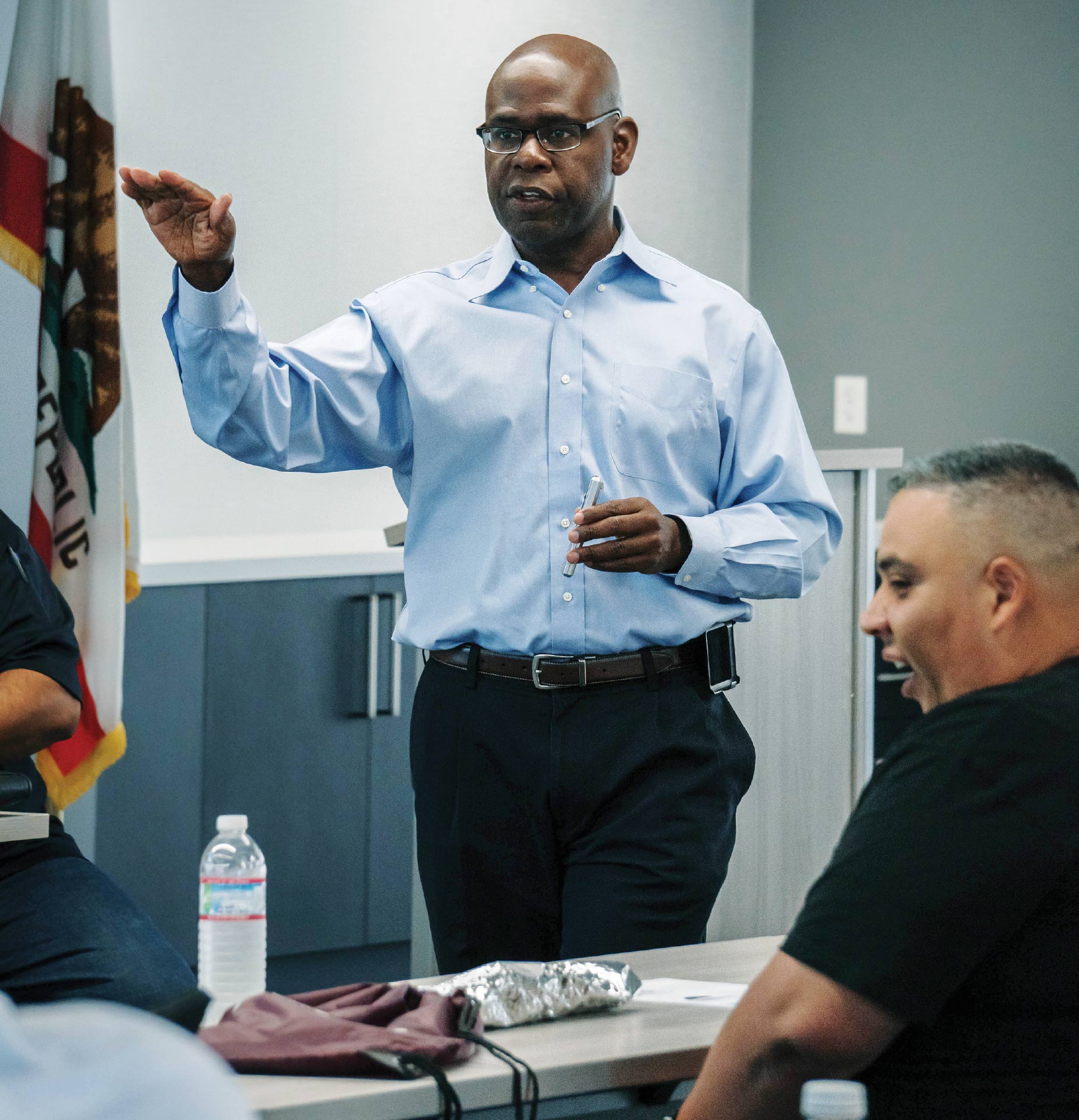
 CATHY KNAPE
CATHY KNAPE
Training Coordinator
PORAC
Want to learn more about the top-notch training available to PORAC members? In this series of articles, Training Coordinator Cathy Knape offers a crash course on the educational opportunities offered through the PORAC Training Institute.
Cumulative stress can build up over the years, and when your career extends 15, 20 or even 30 years, you’re bound to have seen a lot and been through some form of trauma.
As law enforcement constantly changes, one thing stays constant … law enforcement professionals deserve the best resources to support them over a rigorously long career.
The strain that your career can have on your mental health can be extensive and can drastically affect not only the person living through the trauma but also those around them. Peer support can help with stress management, mental health concerns, suicide prevention and overall wellness and resilience.
I read an article from the International Association of Chiefs of Police that stated one of their polling participants reported three of their officers would have committed suicide if not for the help of their peer support team.
Additionally, peer support programs are vital to the retention of officers, and more so for women, because of the value they place on this type of support. Research also shows that officers who utilize their peer support programs have a lower rate of complaints from their community and lower rates of excessive force incidents.
The PORAC Peer Support class assists associations and departments with starting their own peer support programs. We cover the why, who, where and when, along with all the information you’ll need to get started. We also cover legislation concerning mental health and peer support, such as AB 1117, which California signed into law in 2019, mental health apps available to your departments and associations, and resources for funding your newly developed peer support program.
Once you have the basic structure of your peer support program ready, you can begin to choose your support staff. There is a lot of training out there for your staff that covers the dos and don’ts of mental health and peer support.

January 24–25: Monterey
July 23–24: El Cajon
To register, please visit
PORAC.org/porac-institute
Does your association want
to host one of our courses?
Have a venue for at least
40 attendees with room
for coffee and doughnuts?
Fill out the hosting form
at tinyurl.com/2zw8ucct.
Instructors
- Jesus Cerda (Fresno P.D.)
- Willie Triplett (Anaheim P.D.)
- Lorenzo Glenn (retired Anaheim P.D.)
Our most recent evaluations revealed these comments about our Peer Support course:
“Great course on how to get a peer support program started.”
“There’s a lot of information you need to have, and the instructors are a great resource.”
“We didn’t know where to begin, and they made it easy to follow the steps and gave us many resources on funding that’s available.”
In 2024, PORAC will be introducing our first annual wellness workshop. We’ve been collaborating with our Peer Support, LODD and POWER instructors to bring you two days of topics that are important to your associations and departments. We’re also adding a PORAC Partnership company to bring you a new peer support teaching method on trauma.
Make sure to read the PORAC monthly and training e-blasts to keep you up to date on when registration will open. Our first workshop will be limited to only 100 attendees.
Wellness begins with you! Law enforcement personnel cannot help others if they do not first help themselves — peer support programs are a way to provide a path to wellness. Remember, a path without direction is a hole in the ground.
It’s been a few years since a friend shared this poem with me. It was a time when peer support wasn’t a thing, not even a thought. At least it wasn’t in our department. Read it, think about it and share it. I think it’s worth your time … Autobiography in Five Short Chapters by Portia Nelson:
I walk down the street.
There is a deep hole in the sidewalk.
I fall in.
I am lost … I am helpless.
It isn’t my fault.
It takes forever to find a way out.
I walk down the same street.
There is a deep hole in the sidewalk.
I pretend I don’t see it.
I fall in again.
I can’t believe I am in the same place.
But it isn’t my fault.
It still takes me a long time to get out.
I walk down the same street.
There is a deep hole in the sidewalk.
I see it is there.
I still fall in. It’s a habit.
My eyes are open.
I know where I am.
It is my fault. I get out immediately.
I walk down the same street.
There is a deep hole in the sidewalk.
I walk around it.
I walk down another street.
If you’re struggling, please reach out to your co-workers, peer support, and/or family for support and assistance. We care! Stay healthy! Stay safe out there!
Do you have a venue for at least 40 attendees with room for coffee and donuts? Want to host a PORAC Institute course? An association receives two complimentary seats in its hosted class … Fill out the hosting form by visiting tinyurl.com/yfjuzcve.
Please visit our website to register at tinyurl.com/4vef32bx.
